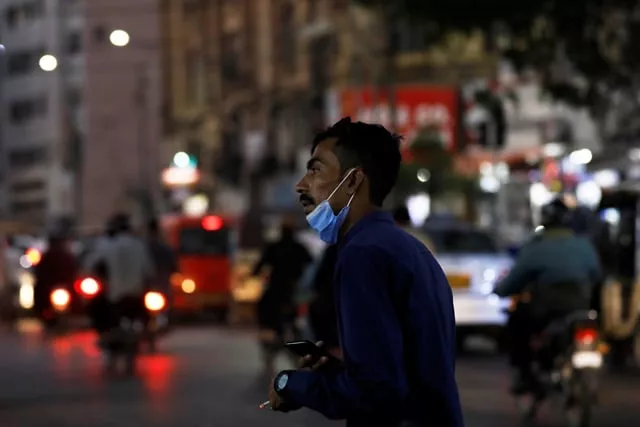40% Pakistanis wary of coronavirus vaccine
Survey shows only 4% blame opposition for Covid spread
ISLAMABAD:Some 40% of Pakistanis are reluctant to get vaccinated against Covid-19 while only 4% of respondents in a national survey blamed opposition for the spread of coronavirus, highlighting challenges to the future immunisation efforts and the government’s communication strategy.
The December 2-6 national opinion survey by the IPSOS, showed that percentage of people saying they would vaccinate themselves has decreased from 62% in November to 60% in December. But the acceptance level was better than August when only 37% were willing to get vaccinated.
The number of people, who were against the vaccines in general has decreased from 27% to 22%. Similarly, in October 23% respondents were of the view that the vaccine would not be effective, but the ratio of those had declined to 15%.
The survey also showed a decline in the number of people blaming the federal government for the spread of coronavirus and the deaths caused by it, from 35% in October to 21%. Instead, the ratio of respondents blaming themselves has increased from 34% in October to 40%.
However, unlike the government’s campaign that the opposition was responsible for the spread of the disease, only 4% blamed the opposition parties. The Pakistan Democratic Movement – an alliance of 11 opposition parties – held a rally in Lahore on Sunday. In Punjab too, only 4% respondents blamed the opposition parties – a ratio that was slightly lower than the last survey results of October.
Instead, the respondents blamed the provincial governments more about the spread of the disease. In October 11% respondents had blamed the respective provincial governments, which has now increased to 14%, according the survey.
There was also 6% increase in worry about side-effects of vaccine. In October 28% were worried about the side-effects of vaccines, which has now increased to 34%. People who believed that they were not at risk from the Covid has also increased from 20% to 23%.
Meanwhile, India media reported that the World Trade Organization (WTO) members failed to reach a consensus on a proposal submitted by India and South Africa in October for a temporary waiver of intellectual property on Covid-19 drugs and vaccines.
At a formal meeting of the Trade-Related Aspects of Intellectual Property Rights (TRIPS) Council on Thursday, members agreed to keep this item on the agenda of the future TRIPS Council meetings to allow further discussions on the submission.
The proposal, which had the support of nearly 100 countries earlier, barring multiple wealthy nations, has been sought in the wake of challenges of developing nations in accessing crucial Covid-19 medical products, including diagnostics.
The United Kingdom last week began inoculation with a vaccine developed by Germany’s BioNTech and Pfizer – less than a year after the genetic code of the new coronavirus was first published. The United States has also given a green light to emergency use of the Pfizer vaccine.
Pakistan has started exploring various options to procure vaccines by the second half of next year. The Ministry of National Health Services had sought Economic Coordination Committee of the Cabinet’s nod for $150 million supplementary budget to procure vaccines.
However, no funding source has been finalised, so far, as the government is also exploring the option to take a World Bank loan to buy vaccines. The IPSOS survey showed that half of the Pakistanis still believe that vaccine for coronavirus will be available to them before the end of 2020.
Overall, the threat perception in Pakistan has started increasing but still majority of the people believe that Pakistan was not threatened by the diseases. As many as 48% respondents said that there was threat of the coronavirus – up from 43%. About 37% said that their families could be at risk of the disease, which was almost equal to personal threat perception.
The overall awareness level about the coronavirus has dipped from 92% to 86% and majority of the people were not fully aware of the pandemic. Around 45% respondents said that they were having “fair amount” of idea about the Covid and another 11% said that they were not very much aware of the contagion. About 45% respondents said that they were very well aware of the Covid-19.


COMMENTS
Comments are moderated and generally will be posted if they are on-topic and not abusive.
For more information, please see our Comments FAQ